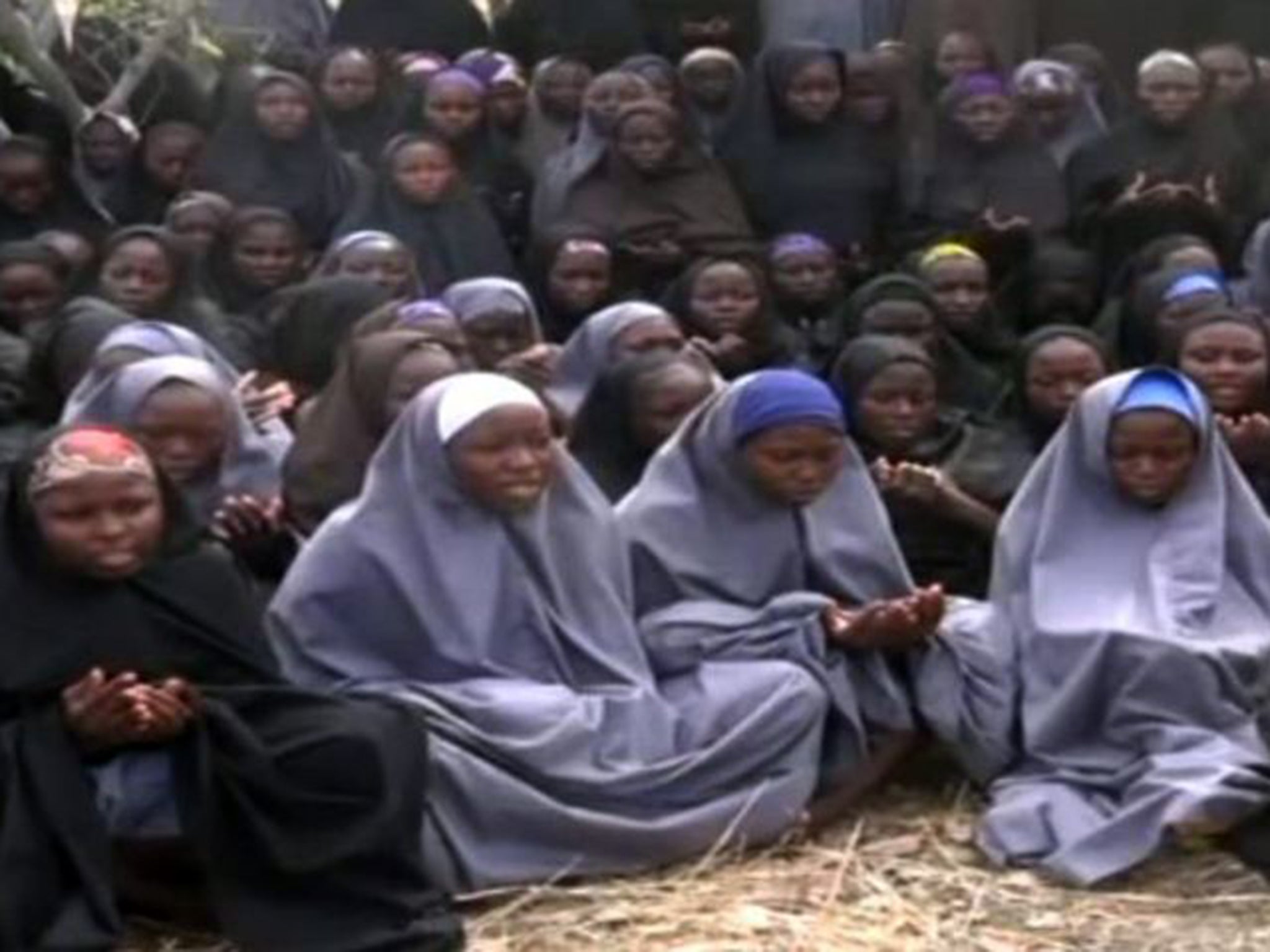Dozens of kidnapped Chibok schoolgirls 'released by Boko Haram' in Nigeria
Jubilation in Nigeria as up to 82 of the girls whose disappearance sparked the 'Bring Back Our Girls' campaign, are reported to have been freed by the Islamist militants

Your support helps us to tell the story
From reproductive rights to climate change to Big Tech, The Independent is on the ground when the story is developing. Whether it's investigating the financials of Elon Musk's pro-Trump PAC or producing our latest documentary, 'The A Word', which shines a light on the American women fighting for reproductive rights, we know how important it is to parse out the facts from the messaging.
At such a critical moment in US history, we need reporters on the ground. Your donation allows us to keep sending journalists to speak to both sides of the story.
The Independent is trusted by Americans across the entire political spectrum. And unlike many other quality news outlets, we choose not to lock Americans out of our reporting and analysis with paywalls. We believe quality journalism should be available to everyone, paid for by those who can afford it.
Your support makes all the difference.Dozens of schoolgirls kidnapped by Islamist militant group Boko Haram in Nigeria have reportedly been released.
The girls have been kept prisoner for three years since they were snatched from the northeastern town of Chibok in April 2014.
A government minister, who asked not to be named and is understood to be the father of two of the girls, said 82 had been released, although this number was unconfirmed with other reports putting the number at between 50 and 62.
Local media reported that communities in Chibok “erupted with joy” on hearing the news.
The kidnap of around 276 young girls caused international outrage, with the hashtag #bringbackourgirls trending on social media and supported by then-First Lady Michelle Obama.
More than 50 managed to escape soon after being kidnapped, but 220 of the girls, all snatched from the same school, remained in captivity.
Bukky Shonibare, one of the founders of the campaign, said: “This is exciting news for us, for the parents and the Chibok community. A very exciting and welcome development.”
Muhammad Askira, national secretary of Kibaku area development association in Chibok, said the reports had renewed the hope of the people.
“We, the people of Chibok, have a cause to celebrate. We are yet to see our daughters, but this has renewed our hope that President Buhari is committed to rescuing our [relatives],” he told Nigerian website The Cable.
Around 20 of the girls were released last October in a deal brokered by the Red Cross, and another five escaped or were rescued, but 195 were still believed to be in captivity prior to the latest release.
A Government official said their release was brought about by negotiation and a government statement would follow.
The girls are believed to have been freed in exchange for some of Boko Haram’s commanders held by the government.
A military source told Reuters the girls were currently in Banki close to the Cameroon border for medical checks and would be airlifted to Maiduguri, the capital of Borneo state. They were said to be in the custody of the Nigerian army.
Nigerian President Muhammed Buhari said last month that his government was in talks to secure the release of the remaining girls.
One of the missing girls, Amina Ali, who managed to escape in May 2016, said that six of the girls had died in captivity.
Boko Haram have kidnapped thousands of children and adults and is believed to have slaughtered more than 20,000 people and displaced around two million in its bid to create an Islamic caliphate in northeast Nigeria.
The country’s army has retaken much of the land lost to Boko Haram, but large parts of the north-east remain under threat from the militants, who have ramped up their suicide bombings and gun attacks in the past few months.
Join our commenting forum
Join thought-provoking conversations, follow other Independent readers and see their replies
Comments